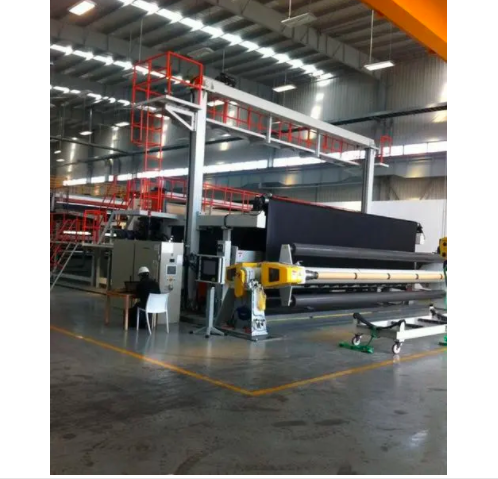- Understanding the Role of Geomembrane Liners in Waste Management
- Innovations in Geomembrane Liners for Water Management
- Geomembrane Liners: A Comprehensive Guide
- The Future of Geomembrane Liners in Civil Engineering
- Geomembrane Liners: Enhancing Landfill Stability
Manager:
WhatsApp:+86 177 0135 2670
Tel:+86 177 0135 2670
Email:marketing@okorder.com
Address:3rd Floor, No.2 Building, No.1 Sanlihe Road
The Vital Role of Geomembrane Company in Environmental Protection
In the intricate web of environmental protection and sustainable engineering, geomembrane companies play a pivotal role. These unsung heroes of our modern world are the artisans crafting barriers against pollution and degradation. As I dive into the world of geomembranes, I am struck by their ethos which is a fusion of innovation coupled with resiliency and an unwavering commitment to sustainability. This article is a heartfelt exploration of the world of geomembranes, where every layer unfolds durability stories while pledging for versatility and promise for natural resource conservation.
The Guardians of the Earth: An Introduction to Geomembrane Companies
Geomembrane companies are at the forefront in fighting pollution. They manufacture these membranes using synthetic substances such as high-density polyethylene (HDPE), polyvinyl chloride (PVC) and ethylene propylene diene monomer (EPDM). Geomembranes are thus developed as impermeable barriers for use in various construction projects and environmental protection activities. Other uses include lining landfills or protecting ponds from contamination among many others.

The Art of Crafting Impermeable Barriers
Manufacturing geomembranes is like conducting an intricate ballet that combines artistry and science. Some firms featured in Geosynthetics Magazine’s product data guide employ advanced techniques such as extrusion, calendaring or spread coating to produce large sheets made out of these synthetic polymers. These membranes do not just prevent flow through; they also do not get affected by chemicals, radiation from the sun or temperature shifts. At this level, it means that under any harsh weather condition these become lasting safeguards that stop fluids or contaminants from spreading.
Versatility in Action: Applications for Geomembrane Systems
Geomembranes are truly versatile materials applicable to industries across all sectors. For instance, in hydropower they support maintenance, rehabilitation and expansion plans at hydroelectric plants, as shown in a comprehensive study on geomembrane systems. They are used to line reservoirs and mitigate water seepage and damage to structures. Likewise, geomembranes are laid down in silos for agriculture and tailings ponds in mining to prevent release of harmful substances into the surrounding.
The Science Behind the Strength: Material Properties of Geomembrane
The physical properties of these materials are based on the type of polymer resins used as precursors. Polyethylene (HDPE) and linear low density polyethylene (LLDPE), for example, may incorporate various additives such as antioxidants, plasticizers, fillers, carbon black or lubricants which alter their performance under different conditions. The use of carbon black improves resistance against UV radiation while antioxidants augment its chemical stability over time. Therefore this makes them applicable for several landfills and containments for hazardous materials.
The Economic and Environmental Synergy
Their relative ease of installation, lightweight nature that allows easy transportation; durability in varied conditions; versatility towards different installation/project considerations makes it beneficial to employ HDPE liners instead of clay barriers which have been a traditional material used by waste managers [2] for instance. For HDPE liner cost calculation purposes when planning landfill closures or containment projects consideration should be given direct costs plus indirect costs like buying price-tag along with transportation, installation & maintenance expenses respectively. Liner monitoring and maintenance usually ignored but critical elements add up to total project lifetime costs also
Future of Geomembrane Technology
There is a continuous development in the field of geomembranes; from new design improvements to better construction quality control. For instance, innovations such as Clean Seam® which is an integrated geosynthetic release film helps avoid buildup of particles by shielding the edges where the geomembrane has been welded from exposure to field conditions. This attention to detail ensures that even though they face more intricate challenges, geomembranes remain reliable for environmental protection.
The Personal Touch: Looking back at Geomembrane Companies
As someone who has always been intrigued by the confluence of technology and environmental preservation, I find what geomembrane companies do very inspiring. They are not just producers; they are dreamers, creating solutions that will redefine our planet’s destiny. Their consistency with respect to quality, innovation and sustainability demonstrates how far human beings can go in dealing with issues that are related to environment.
The Eternal Watch: The Legacy of Geomembrane Companies
Finally, these firms have become custodians of change whose vigilance continues to protect our environment steadfastly. As we move ahead, these lasting and efficient answers only grow in significance. It is an endowment that will continue shaping geotechnical engineering and environmental protection landscape leading towards a healthier cleaner and sustainable tomorrow.
- Previous:The Intrepid Screen: Unmasking the Secrets of Atarfil Geomembranes
- Next:Dizzying Future: Delving into the Critical Role of Geomembrane Factory
-
2024-12-05Geomembrane Liners: A Comprehensive Guide






